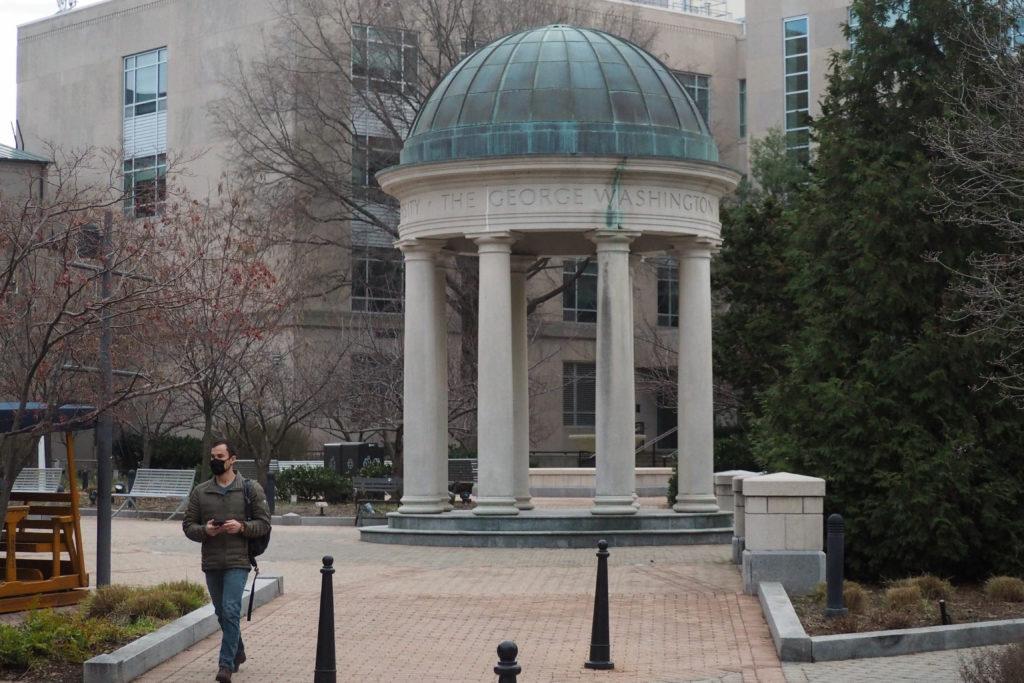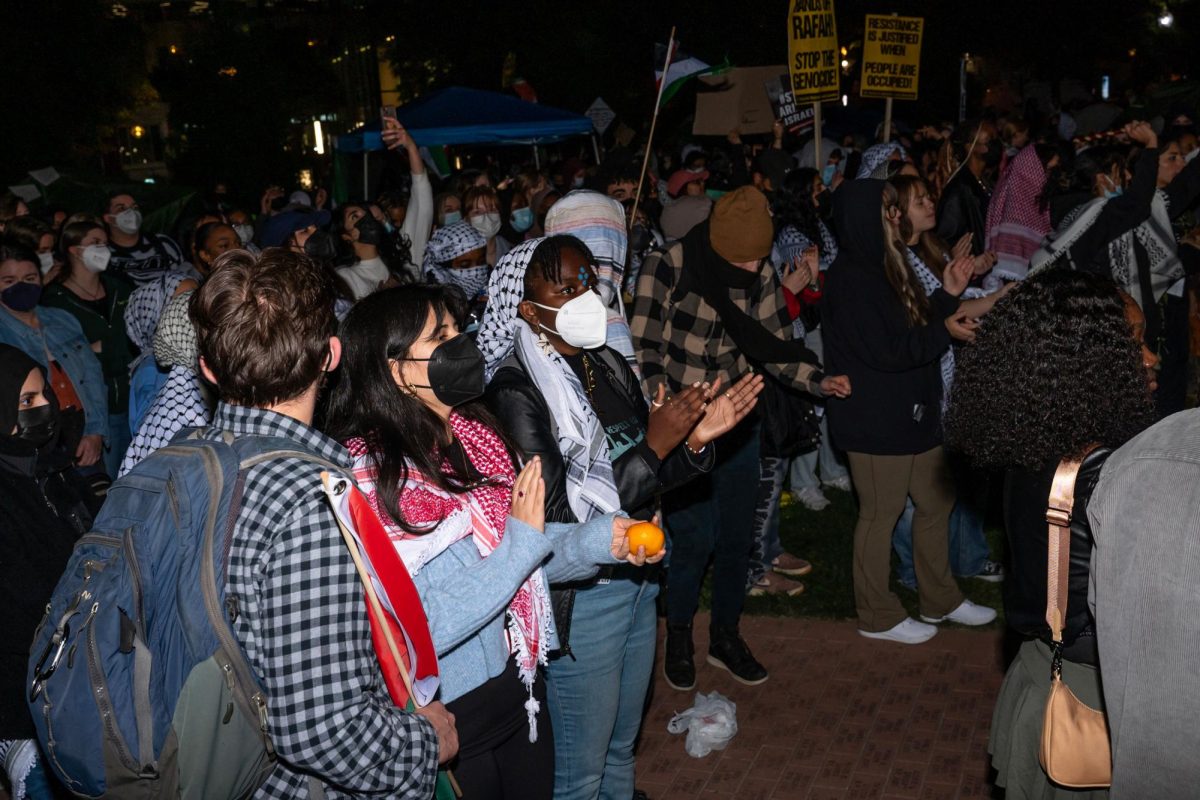Concerns over catching COVID-19 and speculation that GW would ultimately send students home led some students to delay their return to campus.
Many campus residents returned during the weekend of Jan. 8 and 9, when they waited for rapid COVID-19 test results on the third floor of the University Student Center – which filled with about 90 students at a time – and quarantined until receiving two negative COVID-19 test results. Some students decided to tune into the first week of classes from home to avert potential infection and avoid the crowds in case officials decided to clear community members from a campus with cases at an all-time high.
Last week, the University confirmed its plans to return to in-person classes Tuesday despite record high COVID-19 caseloads, fueled by the highly transmissible Omicron variant leading up to the move-in period. Georgetown and American universities are maintaining online classes until at least the end of January.
Anika Sharma, a freshman majoring in public health, said she delayed her drive from Virginia to campus until GW resumed in-person classes because she was concerned officials would shut down campus during the first week of the semester. She said she was worried about contracting the coronavirus from the large number of students traveling back to campus and exposing family members after returning home to isolate.
“Why would I risk myself, and then in the case that we get shut down, why would I bring my germs home, and my parents are high risk,” she said. “I live with my grandfather, so why would I do that?”
[gwh_image id=”1155331″ credit=”Grace Hromin | Senior Photo Editor” size=”embedded-img” align=”none”]Students waited in line to receive rapid COVID-19 test results on the third floor of the University Student Center before moving back into their residence halls and starting their quarantine earlier this month.[/gwh_image]
Sharma said she considered moving back to campus during the move-in period to be more productive with her classwork, but she decided to delay her travel plans after learning that her favorite study spots, like Lisner Hall, would be closed. She said she feared that she and her roommate in Munson Hall would not have enough space in a shared bedroom to complete classes virtually without disturbing each other.
“It’s just not worth it because if my roommate is on a different schedule, it’s just going to be harder because I don’t want to be a disturbance to her, and I’m sure she doesn’t want to be a disturbance to me,” she said.
Georgia Kopf, a freshman majoring in biology, said she tested positive for COVID-19 two days before she planned to return to campus Jan. 9 and had to delay her flight from Cincinnati until completing her isolation period. She said she uploaded her positive test results to the Colonial Health Center portal to indicate that she would arrive to campus later than the move-in period.
“I took a rapid test on Friday and I was supposed to come back on Sunday and it was positive,” she said. “I figured it would be easier for me to quarantine here, and I obviously couldn’t fly back then on Sunday with a positive outstanding test.”
Kiandra White, a freshman biology major, said she waited to travel to campus from her home in El Paso, Texas until Friday night because of concerns about contracting the coronavirus and exposing her family members after returning home to quarantine.
“I know of people that have caught it on campus, and so I didn’t want to have to catch it on campus and have to go back to Texas,” she said. “It would be just too much of a hassle.”
Interim University President Mark Wrighton said in an interview last week that no community members had severe illness from COVID-19 at the time, and officials were only aware of one community member who had been hospitalized during the fall. The individual was discharged after three days, he said.
Gabriel Young, a Columbian College of Arts and Sciences Student Association senator and a junior studying political science, said he decided to stay home in California with plans to return the day before in-person classes began because he feared contracting the virus after Georgetown and American universities delayed in-person operations.
“It makes me so skeptical about why we’re the only D.C. school in the northwest quadrant who is not going back that late,” he said in an interview last week. “Furthermore, Mayor Bowser just declared today a state of emergency for the District, which makes me even more skeptical.”
Young said he was afraid that when he arrived on campus he would be sent home again for an extended period of remote learning similar to what occurred during his freshman year in March 2020.
“I vividly remember GW’s messaging and response to COVID at the time, which was to just go home, ‘you’ll be back after spring break,’” he said. “And the same messaging that they’re using now to talk about Omicron is similar to the one then. And so that is why I have not decided to go back to D.C.”







